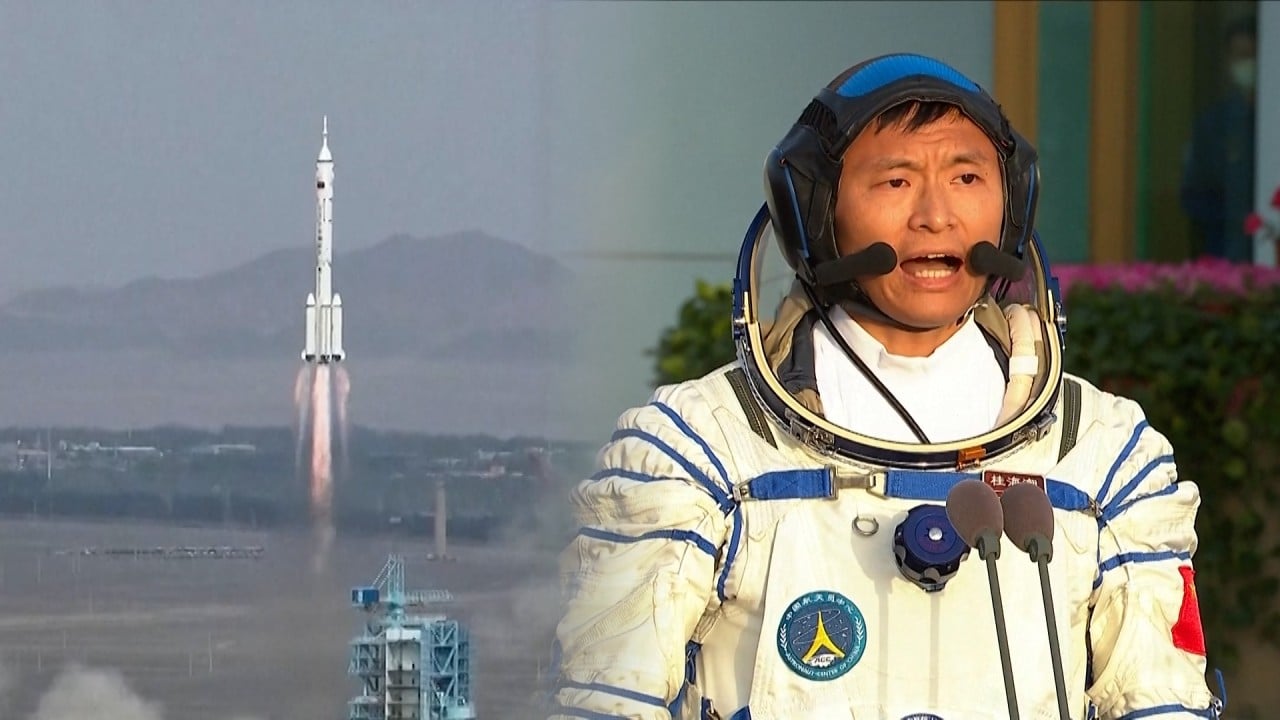
China grows blood stem cells in space in what scientists say is first-of-its-kind experiment
- Cells cultivated on Tiangong space station’s lab module return to Earth, where they will continue to be tested and analysed, Chinese team says
- The work lays a solid foundation for further study of regenerative medicine in space, according to lead researcher
Lei Xiaohua, a researcher with the Shenzhen Institute of Advanced Technology of the Chinese Academy of Sciences who led the experiment, said his team would carry out testing and analysis of the cells.
After the completion of the experiment, China is expected to become the first country to create early-stage blood stem cells in space, Lei told China Science Daily on Sunday.
Warm welcome for Shenzhou 16 crew at China’s Tiangong space station
The next step was to observe the pluripotent stem cells as they differentiated into blood stem cells.
A picture provided by Lei to state broadcaster CCTV showed the pluripotent stem cells starting to differentiate into blood stem cells while in space.
“These blood stem cells will undergo further maturation and differentiation to form a cluster of blood stem cells similar to a bunch of grapes,” Lei was quoted as saying by CCTV on Saturday.
“We have achieved the first goal of our experiment, which is to produce human blood stem cells in space,” he said.
“While in orbit, the stem cells were in good condition and the collected pictures were clear. The data collected was in line with our expectations.”
Lei added that the experiment would lay a solid foundation for further research on stem cell differentiation and regenerative medicine in space.
Scientists have been sending stem cells to space to test the effects of microgravity on cells.
In November, the University of San Diego Sanford Stem Cell Institute sent its blood stem cells to the International Space Station (ISS) to learn how human cells age in a zero-gravity environment.
In May, American scientists sent stem cells to space with Axiom Space’s Axiom Mission 2. Their experiment aims to examine whether scientists can cultivate induced pluripotent stem cells in microgravity.
Stem cell study in Nature didn’t have ethical approval, Chinese academy says
Lei said scientists were interested in the research because pluripotent stem cells have unlimited growth potential and can differentiate into any type of cell in the body, making them an excellent source of cells for use in regenerative medicine.
Lei said his team also planned to conduct research on the growth of pluripotent stem cells in space with the Tianzhou 7 and Tianzhou 8 missions. China has not yet announced the schedule for future Tianzhou missions.
Before that, they will compare the blood stem cells produced in space with a control group grown on Earth to find the specific genes that affect the cells’ growth process in space, according to China Science Daily.


